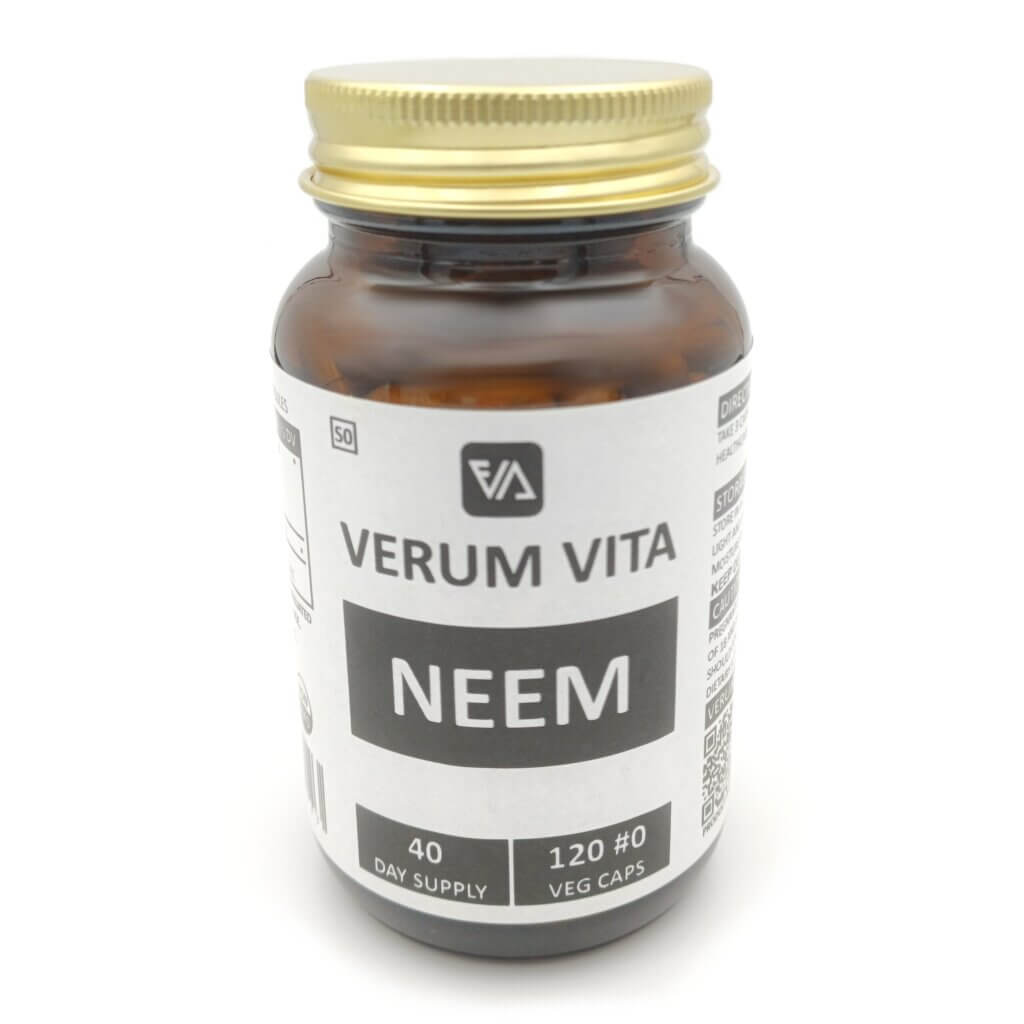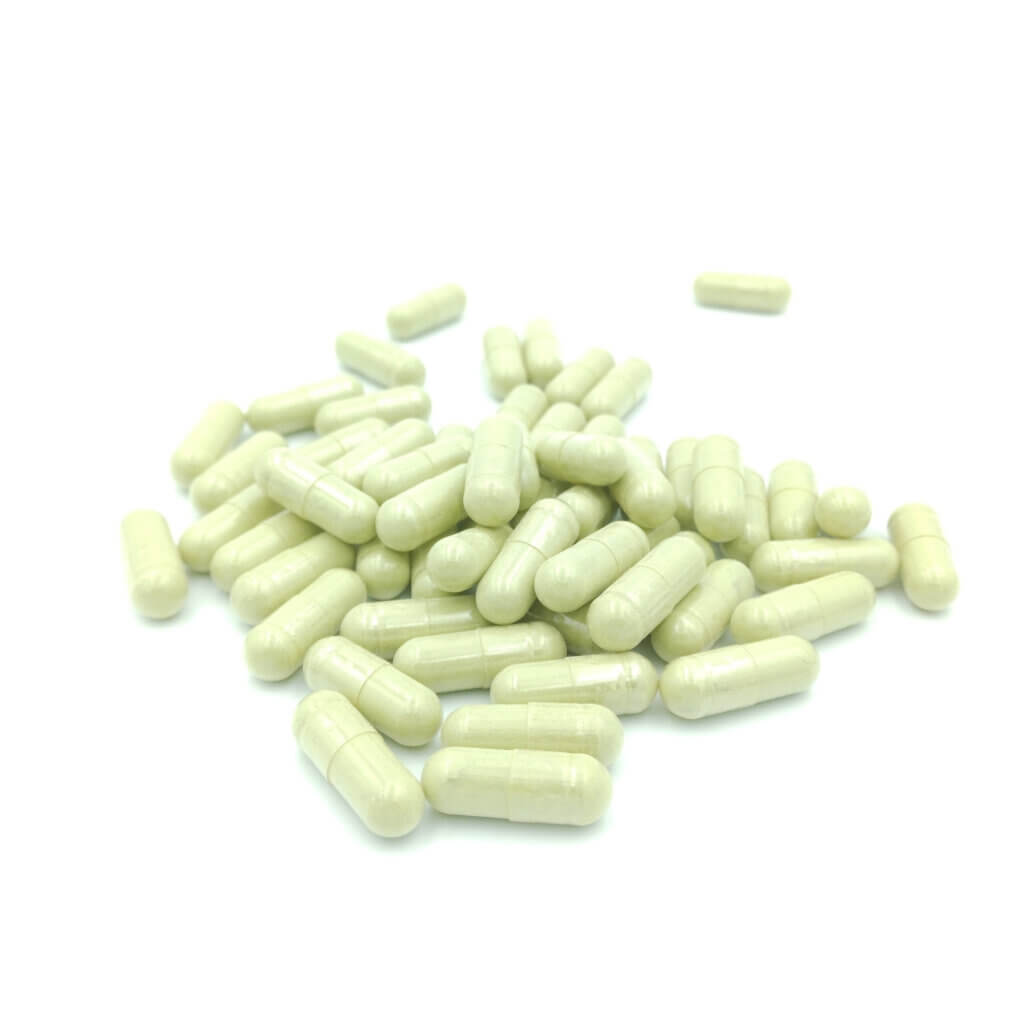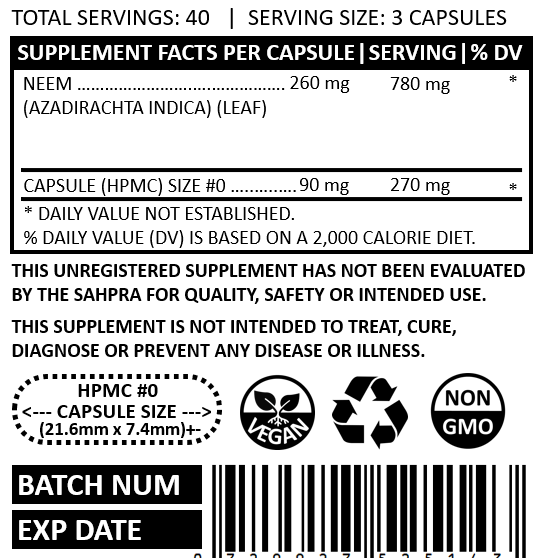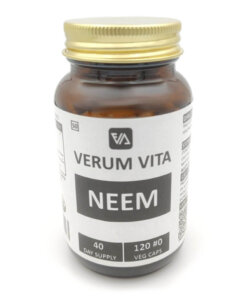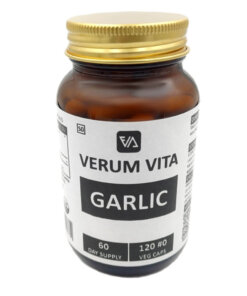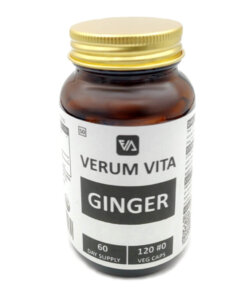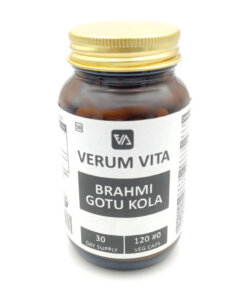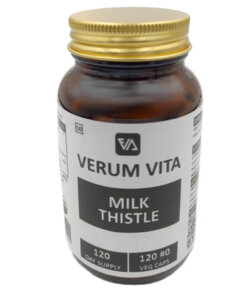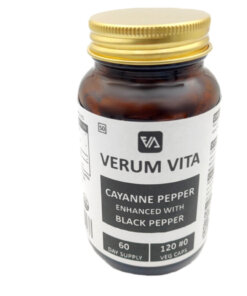Neem (Azadirachta indica) is a fast-growing tree native to India and other parts of South Asia.
It has been used for thousands of years in traditional medicine, particularly in Ayurveda and Unani, for its wide range of medicinal properties.
Almost every part of the neem tree leaves, seeds, bark, and oil is used for therapeutic purposes.
Neem is known for its bitter taste and is available in various forms, including powder, oil, capsules, and creams, to promote health and well-being.
1. Skin Health
- Acne and Blemishes: Neem has antibacterial and anti-inflammatory properties that can help reduce acne, prevent breakouts, and clear skin blemishes.
- Eczema and Psoriasis: Neem is known to soothe irritated skin and is used to reduce the symptoms of skin conditions like eczema and psoriasis.
- Detoxification: Neem capsules are often used to purify the blood, which can help in improving overall skin health.
2. Immune System Support
- Neem has antimicrobial properties that help boost the immune system by fighting off infections caused by bacteria, viruses, and fungi.
- It is commonly used as a natural remedy for boosting overall immunity and maintaining good health.
3. Blood Sugar Regulation
- Neem is believed to have hypoglycemic properties that can help regulate blood sugar levels, making it beneficial for people with diabetes or those looking to control blood glucose levels naturally.
4. Liver Health and Detoxification
- Neem helps in cleansing and supporting liver function, promoting detoxification of harmful substances from the body.
- It is often used to detoxify the body, especially the liver, and help in the management of liver disorders.
5. Anti-inflammatory and Pain Relief
- Neem has anti-inflammatory effects, which can be beneficial for managing pain, especially in conditions like arthritis, where joint inflammation is a key symptom.
6. Digestive Health
- Neem capsules can be used to promote good digestion and help with digestive issues such as gas, indigestion, and stomach ulcers.
- Its antibacterial properties may also help in fighting intestinal infections like E. coli and other harmful bacteria.
7. Anti-Parasitic and Antifungal
- Neem has been traditionally used to fight against parasites (like intestinal worms) and is known for its antifungal properties, which help combat fungal infections such as athlete’s foot or ringworm.
8. Oral Health
- Neem has been used in dental care for its antibacterial properties, helping to reduce plaque, prevent gum disease (gingivitis), and maintain overall oral hygiene.
9. Hair and Scalp Health
- Neem capsules are sometimes used to treat dandruff and promote a healthy scalp by reducing irritation, itching, and flakiness. The antifungal properties can also help in fighting scalp infections.
10. Anti-Aging and Antioxidant Effects
- Neem contains powerful antioxidants that protect the body from oxidative stress, helping to slow the aging process and maintain healthier skin and hair.
Serving Size: 100 grams (NEEM powder)
- Calories: ~300 kcal
- Total Fat: 1–2 g
- Saturated Fat: 0.5 g
- Polyunsaturated Fat: 0.3 g
- Monounsaturated Fat: 0.5 g
- Cholesterol: 0 mg
- Sodium: 0–10 mg
- Total Carbohydrates: 35–45 g
- Dietary Fiber: 15–25 g
- Sugars: 0–5 g
- Protein: 20–25 g
Vitamins and Minerals:
- Vitamin C: ~20–25 mg
- Calcium: ~300–350 mg
- Iron: ~15–20 mg
- Magnesium: ~70–80 mg
- Potassium: ~1,000 mg
- Vitamin E: ~2 mg
- Vitamin A (beta-carotene): ~200 IU
Other Components:
- Antioxidants: Neem contains a significant amount of antioxidants like quercetin and nimbolide.
- Polyphenols: These are beneficial compounds that contribute to neem’s anti-inflammatory, antimicrobial, and immune-boosting effects.
| ATTRIBUTES | NON-GMO, NON-IRRADIATED, ORGANIC, VEGAN |
|---|---|
| BARCODE | 0729927525143 |
| CAPSULE COUNT | 120 |
| CAPSULE DIMENSIONS | SIZE #0 | 21.6mm x 7.4mm |
| CAPSULE TYPE | HPMC (VEGAN) |
| CAUTION | Pregnant/nursing mothers, children and individuals with a medical condition should consult a physician before using this dietary supplement. |
| DISCLAIMER | This unregistered supplement has not been evaluated by the SAHPRA for quality, safety or intended use. This supplement is not intended to treat, cure, diagnose or prevent any disease or illness. |
| INCI | AZADIRACHTA INDICA |
| INGREDIENTS | NEEM (260mg) PER CAPSULE (90mg) HPMC |
| REF | https://en.wikipedia.org/wiki/Azadirachta_indica |
| SAHPRA | NOT EVALUATED |
| SCHEDULE LEVEL | [S0] SCHEDULE LEVEL ZERO |
| SERVING SIZE | 3 CAPSULES |
| SERVINGS | 40 SERVINGS |
| SKU | VV2410-145513 |
| SUGGESTED USE | 3 CAPS, ONCE DAILY |
| SUPPLY | 40 DAYS |
| WARRANTY | NON RETURNABLE |

